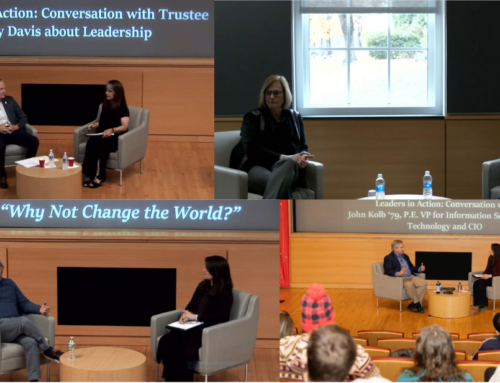Peter Nowak is the author of Humans 3.0: The Upgrading of the Species, the 2019-2020 “Community Read” at Rensselaer Polytechnic Institute. The common reading experience, established in 2015, engages the Rensselaer community in discussions surrounding issues of global concern. This year’s selection focuses on how innovation and technology have impacted society and the human species.
Nowak, who has spent over a decade of his career writing about technology, will visit Rensselaer this month to discuss Humans 3.0 along with his upcoming publication, The Rise of Real-Life Superheroes and the Fall of Everything Else. The event, free and open to the public, will take place on Sept. 23 at 7 p.m. in Room 3303 of the Russell Sage Laboratory on campus.
What ethical responsibilities do humans have when it comes to emerging technologies?
One of the reasons the world has moved so fast over the past two decades is because people have raced to deploy new innovations quickly to capture the big, new markets they create. From joblessness and inequality, to the erosion of democracy, we’re now dealing with the fallout from that approach. So-called “Big Tech” has this attitude of “ask for forgiveness rather than permission,” and that’s something that needs to change because it’s unethical. Side effects need to be considered before a new technology is rolled out widely, because they’re much harder to address after the fact, when we haven’t prepared for them. If that means slowing down the pace of technological development, so be it.
What is one lesson the next generation of innovators can learn from history?
Things rarely go as you expect them to. Countless innovators have created something with a market in mind, only to end up going in a completely different direction in what is known as a pivot. Negative side effects happen the same way — they often arise completely unexpectedly. So, try your best to prepare for the unexpected.
What are your biggest takeaways from writing about technology for over a decade?
There’s a lot of talk about how every development is new and/or revolutionary, but that’s very rarely true. In the vast majority of cases, something “new” is actually just something old repackaged, slightly improved, or different in some small way. This particularly applies to social criticism of technology. One of my favorite examples is the common critique these days of how everyone has their faces buried in smartphones and how this is somehow making us antisocial or disconnected from each other. Yet, if you look at photos from the 1940s of people commuting on trains, they’ve all got their faces buried in newspapers. As they say, everything old is new again.
How can we combat some of the negative “side effects” arising from emerging technologies?
There’s no easy fix, but perhaps the best way is for us to simply become well-rounded people. Innovators, scientists, and technologists often have a tendency to be myopic about their work, which is how those unforeseen side effects can occur. Learning about other fields, studying other subjects, traveling, talking to people who have completely different views — these aren’t just good ways to gain different insights, they’re also great ways for individuals to become better people.
How do you predict technological innovation will further evolve the human species over the next hundred years?
Futurist Ray Kurzweil believes we won’t see 100 years of progress over the next century; it’ll be more like 20,000 years. I don’t know if I’d quantify it to the same degree, but I do agree that technology advances exponentially, so it’s almost a case of “we ain’t seen nothing yet.” This century is likely to bring huge advances in neuroscience and nanotechnology, among other fields, so I expect massive improvements in health and longevity. I also agree with the likes of Bill Gates and Nobel Prize-winning economist Edward Prescott, who say that a continually improving global economic situation, driven by technology, will largely eliminate poverty. With those two pillars in place — health and economic security — it’s exciting to imagine where humanity might go. I hope it’s somewhere good.
In a world where technology is constantly questioned, why do you maintain the belief that the positives outweigh the negatives?
I’ve tried to measure and quantify the positives in Humans 3.0, such as economic and health improvement. When you look at world history in those most important contexts, there’s no question that the positives outweigh the negatives. If you compare life almost everywhere on this planet today to how it was in the same place a hundred years ago, never mind a thousand, there’s no question it’s better. But we never hear about that side of it. The media is like our nervous system — it doesn’t tell us when everything is going well, it only alerts us to problems. We are constantly aware of all the bad things as a result and tend to think of the world as a toxic cauldron. It isn’t. We have big, ongoing problems, but they’re only a small part of the overall big picture, which is actually pretty good.





